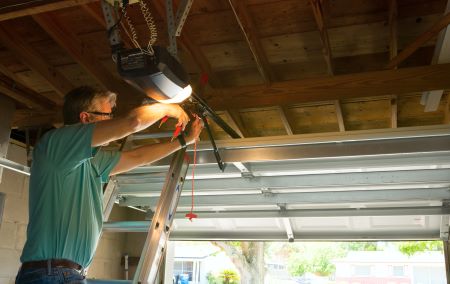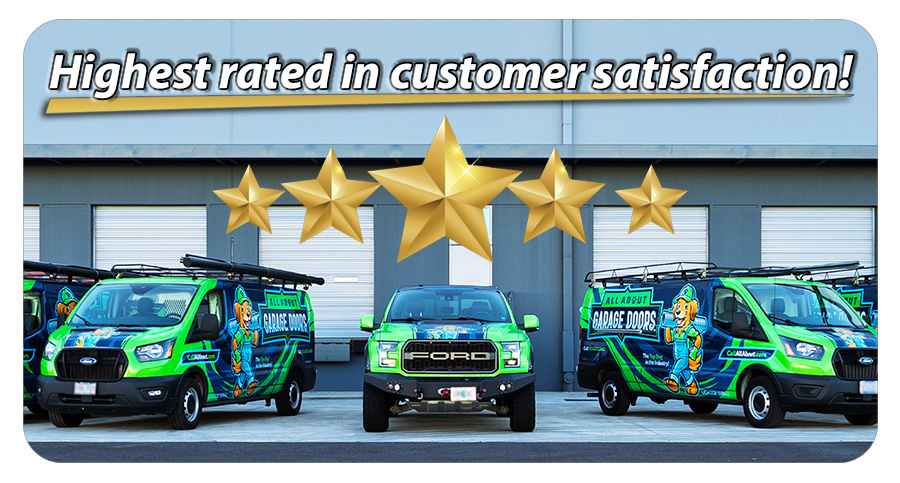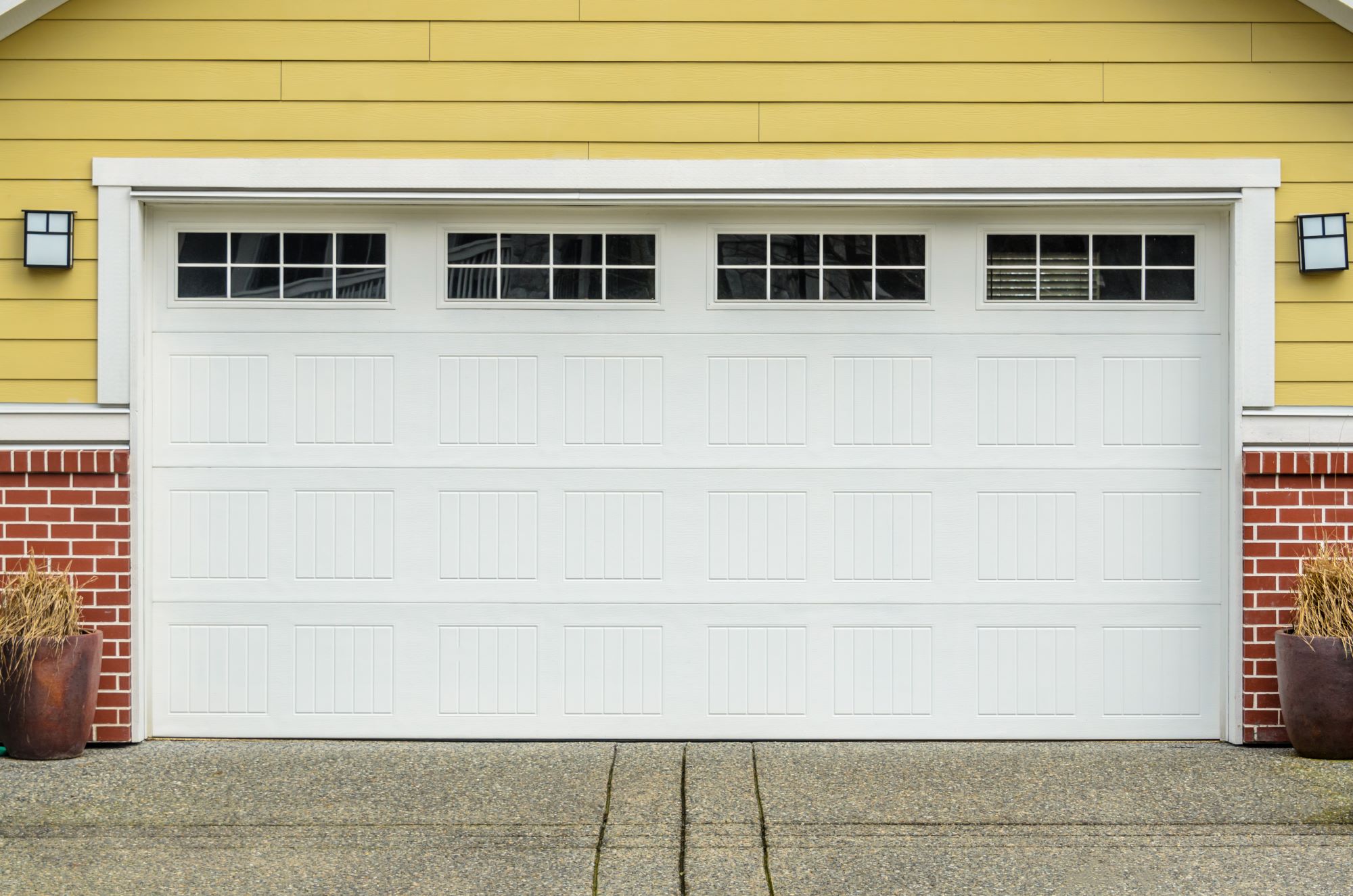The garage door opener is an essential component of your garage door system. It’s responsible for the convenient and smooth operation of your garage door, providing security and ease of access to your home. Over time, technology evolves, and so do the features and capabilities of garage door openers. If you find yourself wondering, “Can I upgrade my garage door opener?” you’re in the right place.
In this comprehensive guide, we will explore the various aspects of upgrading your garage door opener. We’ll cover everything from garage door parts replacement to garage door repair near you and garage door service options. By the end of this article, you’ll have a clear understanding of when and why you should upgrade your garage door opener and how to go about it.
Why Upgrade Your Garage Door Opener?
Before delving into the details of upgrading your garage door opener, it’s important to understand why you might want to consider this option. There are several compelling reasons to upgrade your garage door opener:
Improved Security: Modern garage door openers come with advanced security features, such as rolling code technology, which makes it significantly harder for thieves to hack into your garage.
Enhanced Convenience: Newer models often offer features like smartphone compatibility and remote access, allowing you to control your garage door from anywhere. This can be incredibly convenient for busy homeowners.
Energy Efficiency: Upgrading to a newer garage door opener can help reduce your energy bills. Many modern models are designed to be more energy-efficient, which can save you money in the long run.
Quieter Operation: If your current garage door opener is noisy, upgrading to a quieter model can make a noticeable difference in your daily life.
Safety Features: Newer openers are equipped with enhanced safety features, such as sensors that detect objects in the door’s path and automatically reverse it to prevent accidents.
Compatibility with Smart Home Systems: If you’re building a smart home or already have one, upgrading to a garage door opener that integrates seamlessly with your smart home system can enhance your home automation capabilities.
Improved Performance: Over time, the mechanical components of garage door openers can wear out. Upgrading to a newer model ensures better performance and reliability.
Assessing Your Current Garage Door Opener
Before you decide to upgrade your garage door opener, it’s essential to assess your current setup. Understanding the type and condition of your existing opener will help you determine whether an upgrade is necessary. Here are some key factors to consider:
Type of Opener: There are several types of garage door openers, including chain-drive, belt-drive, screw-drive, and direct-drive. Each type has its own set of advantages and disadvantages. Determine which type you currently have and whether you want to switch to a different type for the upgrade.
Age of Opener: Garage door openers typically have a lifespan of around 10-15 years, depending on usage and maintenance. If your opener is approaching or past this age, it might be a good time to consider an upgrade.
Noise Level: If your current opener is excessively noisy, it may be worth upgrading to a quieter model, especially if the noise is disrupting your daily life.
Safety Features: Check if your current opener has safety features such as photoelectric sensors and auto-reverse functionality. If not, upgrading for safety reasons should be a priority.
Smart Features: Determine whether your current opener can be integrated with smart home systems or if it lacks these capabilities, which might be a compelling reason to upgrade.
Repair History: If your garage door opener has required frequent repairs or has become unreliable, it’s a strong indicator that an upgrade is necessary. Frequent breakdowns can be costly and inconvenient.
Choosing the Right Garage Door Opener
Once you’ve decided to upgrade your garage door opener, the next step is choosing the right one. There are several factors to consider when making this decision:
Type of Drive: As mentioned earlier, there are different types of drives for garage door openers. Each has its own advantages, so choose one that suits your preferences and needs.
Chain-Drive: Affordable and durable but can be noisy.
Belt-Drive: Quieter than chain-drive and still reliable.
Screw-Drive: Fewer moving parts, requiring less maintenance.
Direct-Drive: Ultra-quiet and has fewer parts that can wear out.
Horsepower: The horsepower rating of your opener determines its lifting capacity. For standard residential doors, ½ to 1 horsepower is usually sufficient. If you have a heavier door or a custom-made one, consider a higher horsepower opener.
Security Features: Look for advanced security features like rolling code technology, which changes the code each time you use the opener, preventing unauthorized access.
Smart Home Compatibility: If you want to integrate your garage door opener into your smart home system, ensure that the model you choose is compatible with the platforms you use (e.g., Alexa, Google Home, Apple HomeKit).
Battery Backup: In areas prone to power outages, a garage door opener with a battery backup can be invaluable. It allows you to operate the door even when the power is out.
Noise Level: If noise is a concern, consider a garage door opener designed for quiet operation.
Warranty: Check the warranty offered with the opener. A longer warranty period indicates the manufacturer’s confidence in the product’s durability.
Price: Set a budget for your upgrade and choose an opener that fits within it. Remember that the initial cost may be offset by energy savings and reduced maintenance expenses over time.
Garage Door Parts Replacement

In some cases, you may not need to replace the entire garage door opener but only certain parts. Garage door parts replacement can be a cost-effective way to address specific issues and improve the performance of your opener. Here are some common parts that may need replacement:
Garage Door Springs: Springs are a critical component of the garage door system. If they break or become worn out, they can affect the balance and operation of the door. Replacing springs should be done by a professional due to the potential for injury.
Rollers: Rollers help the garage door move smoothly along the tracks. If they are damaged or worn, they can cause the door to become noisy or operate unevenly.
Cables: The lifting cables are responsible for carrying the weight of the door. If they fray or break, it can lead to a dangerous situation. Cable replacement should also be performed by a professional.
Sensors: Safety sensors are crucial for preventing accidents. If your sensors are malfunctioning or misaligned, they may need replacement or adjustment.
Remote Controls: If your remote control is not working correctly, it might be a battery issue, but it could also be a problem with the opener’s receiver. Replacing remote controls or the receiver can restore remote access functionality.
Keypad: If your garage door has a keypad for keyless entry and it’s not functioning correctly, you may need to replace it.
Drive Components: Components like gears and trolleys within the garage door opener may wear out over time. These can often be replaced without replacing the entire opener.
It’s important to note that while some of these replacements can be done by homeowners with the right tools and knowledge, others, like springs and cables, should only be replaced by trained professionals due to the high risk of injury.
Garage Door Repair Near Me
When it comes to garage door repair, it’s crucial to find a reputable and experienced service provider. Searching for “garage door repair near me” is a common way to find local professionals who can address your garage door issues. Here’s a step-by-step guide on how to choose the right garage door repair service:
Research: Start by researching local garage door repair companies. You can do this by asking for recommendations from friends or neighbors, checking online reviews, or consulting business directories.
Check Credentials: Ensure that the repair service is licensed and insured. This protects you in case of accidents or damage during the repair process.
Request Quotes: Contact multiple repair companies and request quotes for the repair work needed. Be specific about the issues you’re facing with your garage door.
Ask About Experience: Inquire about the experience of the technicians who will be working on your garage door. Experienced professionals are more likely to diagnose and fix problems accurately.
Check for Warranties: Ask if the repair service provides warranties for their work and the parts they use. A reputable company should stand by their service and products.
Verify Availability: Ensure that the repair service can accommodate your schedule and provide a reasonable timeframe for completing the repairs.
Get Everything in Writing: Before the repair work begins, make sure you have a written agreement that outlines the scope of work, costs, and any warranties provided.
Ask for References: Don’t hesitate to ask for references from previous customers. Contacting these references can give you insights into the repair service’s reliability and professionalism.
Trust Your Instincts: If a repair service raises any red flags or makes you uncomfortable, consider looking for another option. Trusting your instincts is important when choosing a service provider.
Review the Completed Work: After the repair is completed, inspect the work carefully to ensure that it meets your expectations. If there are any issues, address them with the repair service promptly.
Garage Door Service
Regular garage door maintenance and servicing are essential for prolonging the lifespan of your garage door opener and preventing unexpected breakdowns. Here are some key aspects of garage door service:
Routine Inspection: Schedule regular inspections of your garage door system to identify and address minor issues before they become major problems.
Lubrication: Lubricate moving parts such as rollers, hinges, and springs to ensure smooth operation. Use a recommended garage door lubricant to prevent premature wear.
Tighten Hardware: Over time, nuts and bolts can loosen due to vibrations. Periodically check and tighten all hardware to maintain structural integrity.
Balance Check: A garage door should be properly balanced to avoid undue strain on the opener. Test the balance by disconnecting the opener and manually lifting the door halfway. It should stay in place; if it doesn’t, it may need adjustment.
Safety Sensor Alignment: Ensure that the safety sensors are properly aligned. Misaligned sensors can prevent the door from closing or cause it to reverse unexpectedly.
Test Auto-Reverse: Regularly test the auto-reverse feature of your opener to make sure it’s functioning correctly. Place an object in the door’s path, and it should reverse upon contact.
Clean and Paint: Clean the door’s exterior regularly to remove dirt and debris. If you have a wooden door, inspect it for signs of rot and repaint it as needed to protect it from the elements.
Weatherstripping Replacement: Check the weatherstripping along the sides and bottom of the garage door. If it’s damaged or deteriorating, replace it to maintain insulation and weatherproofing.
Opener Inspection: Inspect the garage door opener for signs of wear and tear, and address any issues promptly to avoid costly repairs down the road.
Professional Service: While you can perform some maintenance tasks yourself, it’s advisable to schedule professional garage door service at least once a year. A trained technician can perform a comprehensive inspection and tune-up.
Upgrading your garage door opener is a practical step to enhance the security, convenience, and efficiency of your home. Before making a decision, assess the condition of your current opener and evaluate your specific needs. Choosing the right garage door opener, whether for its security features, smart capabilities, or quiet operation, can make a significant difference in your daily life.
If you encounter issues with your garage door opener, such as worn-out parts or malfunctions, consider garage door parts replacement or seek professional garage door repair near you. Regular garage door service and maintenance are essential to ensure that your opener continues to function optimally and that your garage door system remains safe and reliable.
Remember that the safety of your garage door system is paramount, and any repairs or upgrades involving critical components like springs or cables should be entrusted to qualified professionals. With the right approach to maintenance and the right choice of upgrades, your garage door opener can continue to serve you reliably for years to come.
- Garage Door Repair Portland
- Garage Doors Portland
- Broken garage door springs beaverton
- Garage Doors Beaverton
- Garage Door Repair Lake Oswego
- Garage Doors Lake Oswego
- Garage Doors Aloha
- Garage Door Repair Tualatin
- Garage Doors Tualatin
- Garage Door Repair Wilsonville
- Garage Doors Tigard
- Garage Doors Hillsboro
- Garage Doors Wilsonville
- Garage doors Oregon City
- Garage Doors Sherwood
- Broken garage door springs hillsboro
- Garage door repair forest grove
- Garage door repair newberg
- Garage door repair west linn
- Broken Garage Door Springs Aloha OR
- Garage Door Repair Hillsboro
- Broken Garage Door Springs Lake Oswego
- Broken Garage Door Spring Hillsboro
- Broken Garage Door Springs Portland
- Garage Door Spring Repair Portland
- Garage Door Repair Beaverton
- Garage Door Repair Sherwood
- Garage Door Spring Repair Tigard
- Garage Door Spring Repair Wilsonville
- Garage Door Spring Repair Oregon City
- Garage Door Spring Repair West Linn
- Garage Door Installation Tualatin
- Garage Door Installation Wilsonville
- Garage Door Installation West Linn
- Garage Door Installation Beaverton
- Garage Door Installation Hillsboro
- Garage Door Installation Tigard
- Garage Door Spring Repair Beaverton
- Garage Door Spring Repair Hillsboro
- Automatic Gate Installation Newberg OR
- Automatic Gate Installation Wilsonville OR
- Automatic Gate Installation Oregon City OR
- Garage Door Opener Installation Portland OR
- Garage Door Opener Installation Hillsboro OR
- Garage Door Opener Installation Wilsonville OR
- Garage Doors Milwaukie OR
- Garage Door Repair Milwaukie OR
- Garage Door Installation Milwaukie OR



